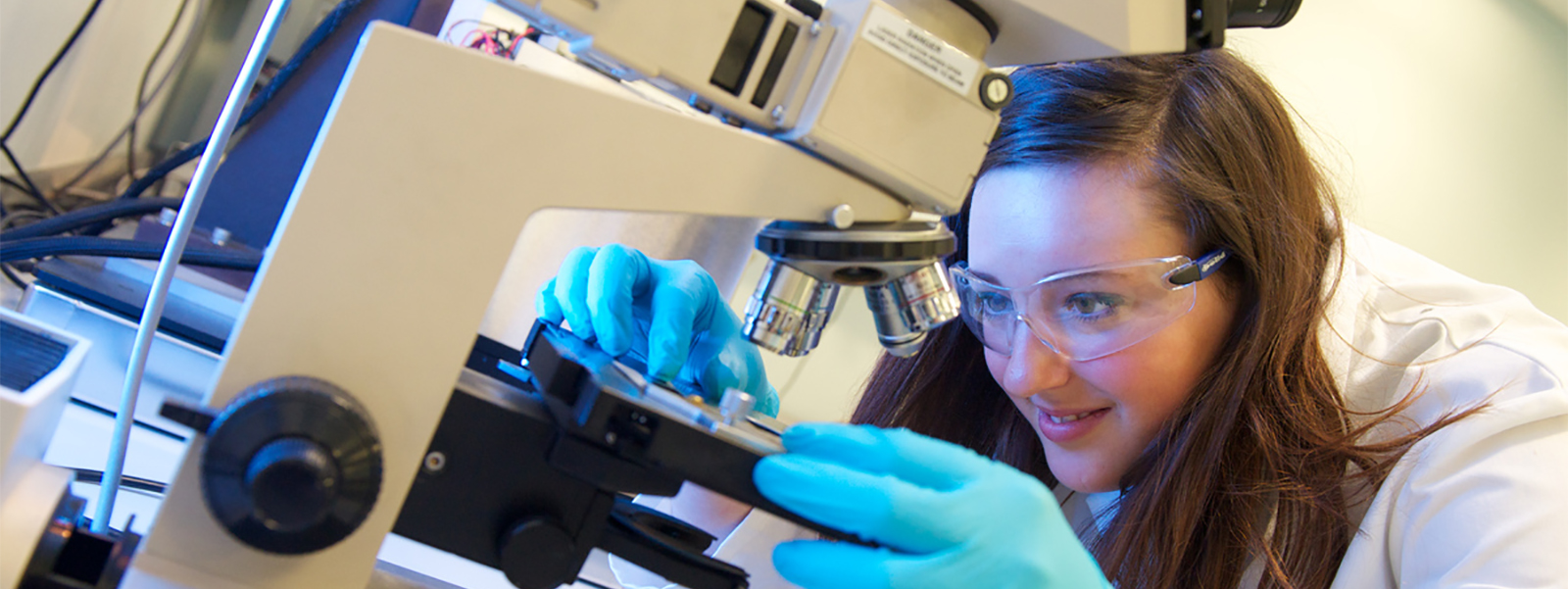Our biomedical sciences courses are designed to reveal the excitement of developments in biology and medicine and to provide a high-level, scientifically-based education. They lie at the interface of science and medicine, with a specific focus on biochemistry, microbiology, immunology and pharmacology. From early discoveries, such as vaccines and penicillin, to the human genome project and the modern drug industry, discoveries in these fields have had a profound impact on society.
What is biochemistry?
Biochemistry is the study of the composition, metabolism and function of biological systems at the molecular level.
Together with the related field of molecular biology, biochemistry continues to produce important advances into understanding the molecular basis of life, and how alteration or disruption of these molecular pathways leads to disease processes.
What is immunology?
Immunology is the study of how the body defends itself against disease.
It provides an understanding of the function of the immune system, often thought of in terms of defence against bacteria or viruses or parasites, but the immune system is also involved in the elimination of cancer and in processes like wound healing. Sometimes it's not fully effective and on other occasions it's misdirected into attacking the body's own tissue. This leads to diseases like rheumatoid arthritis, diabetes, or allergy which are becoming more prevalent in the western world.
What is microbiology?
Microbiology is the study of the smallest living organisms (micro-organisms or microbes), which include viruses, bacteria, fungi, algae and protozoa.
Microbes are a major cause of disease in humans, but they can also be useful in industrial processes from pollution control to the production of important therapeutic compounds. Emphasis is given to the production by microbes of alcoholic beverages, antibiotics, vaccines, organic acids and other commercially-important products. The course includes material on the:
- control of food poisoning micro-organisms
- role of micro-organisms in biodeterioration
- importance of micro-organisms in environmental recycling of plant and animal matter and their use in environmental biotechnology
What is pharmacology?
Pharmacology is the study of how drugs and other chemicals affect the functions of the body in health and disease.
As a subject it underpins the development of new or improved medicines within the pharmaceutical industry and the treatment of disease within the healthcare sector. Topics covered in the course include:
- neuroscience
- the cardiovascular system
- hormones
- the function of organs such as the liver, kidneys and gastrointestinal tract
Our unique degree options
Strathclyde is unique in Scotland in offering five joint Honours degrees that allow you to combine two subject options. We also offer specialist degrees that will allow you to choose a particular career path in industry or the public sector. Through the Integrated Masters (MSci) courses there's the opportunity to take one biomedical sciences subject to Masters level by completing a research-led fifth year of study.
Teaching material is kept up-to-date via the strong industrial and research links of our academic staff and this ensures you are provided with useful and relevant experience.
Careers
A Strathclyde biomedical sciences degree opens the door to many career opportunities. You could be involved in the development of novel drugs, food processing, protecting the environment, fighting disease or even slowing the ageing process.
Graduates have found jobs in:
- pharmaceutical, biotech and agrochemical industries
- hospitals and public health laboratories
- environmental centres
- analytical and forensic science labs
- universities
- the scientific civil service
- teaching at all levels
The transferable skills you acquire will prepare you not only for a career in science, but also for positions in areas such as finance, management, marketing, sales, business and the media.
The degree in Biomedical Science is accredited by the Institute of Biomedical Science, which enables graduates to apply for jobs in hospital labs and join training programmes for professional registration.
